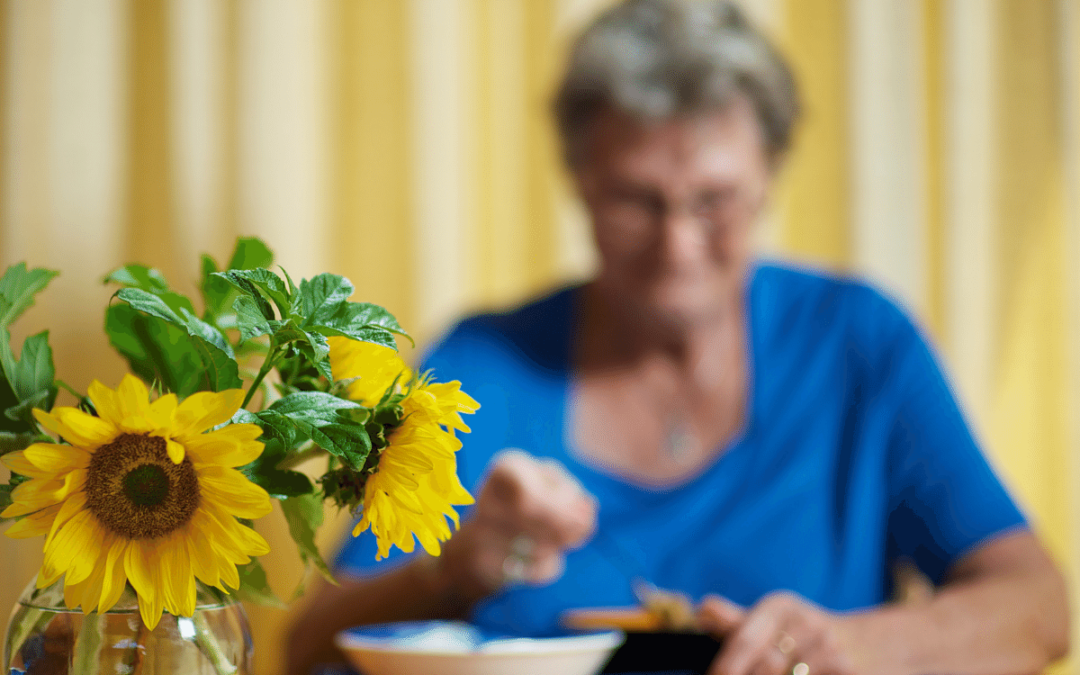Healthy Eating for Seniors
Healthy eating for seniors is extremely important for a number of reasons. Ensuring that you are properly nourishing the body is important at every stage of life, however, as someone gets older it can be more difficult to fulfil the body’s nutritional needs which can lead to increased risk of illness, general fatigue, and more.
What are the benefits of a balanced diet for the elderly?
Getting the right types of foods can help to boost the immune system, which is especially important for the elderly as the immune system can suffer later in life. Due to this, what might be a trivial illness so someone younger can be life-threatening to someone in their senior years.
A healthy and balanced diet also reduces the risk of chronic health conditions, for example, diabetes and heart disease. It can also help reduce the risk of obesity which can come with the increasingly sedentary lifestyle that comes with old age.
Eating well can also lead to positive mental health benefits, not only by reducing instances of illness but also by increasing energy, well-being and mood.

Why is it harder for elderly people to meet their nutritional needs?
Malnutrition is common in elderly people, but it doesn’t have to be this way. There are several reasons that a balanced diet can become more difficult as someone ages, and if you understand these you can help make sure your loved one is getting all the vitamins and nutrients needed to stay healthy.
Harder to access a range of foods.
For the elderly, going out to the supermarket and picking up a big varied shop can become riskier, whether this is driving, walking, or taking the bus. There is also a large percentage of elderly people who do not feel comfortable ordering groceries online. At Care24Seven our carers can handle food shops and provide your loved ones with a mix of healthy and enjoyable food.
Increased risk with preparation.
Preparing food and cooking can become more difficult with age, whether this is cutting up food to prepare, or using the oven itself. This can lead to increased reliance on a microwave if this is available, or just cold unfulfilling meals. Along with providing groceries, our carers can also provide meals and document whether these have been eaten or not. This helps us keep track of the service users’, calorific and vitamin intake to inform the family of any fluctuations.
Health issues
There are several ways in which health issues can impact the desire to eat, this can be from the pain of eating stemming from dental issues or lack of motivation caused by depression and other mental health issues. At Care24Seven we offer care on a 1-to-1 basis, which means that issues like this are noticed early and the appropriate assistance can be requested.
Healthy Eating tips for Seniors
There are a number of ways a healthy and balanced diet can become more accessible to the elderly, here are just some ideas.
- Increase variety – It can be easy to fall into a rut of eating the same thing everyday, it’s important to be eating the right amount of each food group and as many colourful fruits and vegetables as possible.
- Smaller snacks over large meals – Large meals can be intimidating, so where possible get your loved one into the habit of eating smaller meals more frequently.
- Check local services – You may be able to order food boxes on behalf of your loved one.
- Socialise during mealtimes – Eating is more enjoyable together, if you can spend meal times with your loved ones, then this can greatly boost attitudes towards food, alternatively, Care24Seven can help with this.
- Tricks to increase calorie intake – If not eating enough is the issue, meals can be bulked out with different sauces, which can also provide extra vitamins. Grated cheese can also be a good way to increase calories in moderation, as well as switching to high fat milk for breakfast and adding nuts and/or seeds. Increasing foods with healthy fats like avocado and salmon can also help.

The Importance of Drinking Water for the Elderly
It’s not just managing food intake that can become more difficult during ageing, getting enough water can also become a chore. As someone gets older the body is less able to protect itself from dehydration. Thirst signals to the brain are reduced, and the body has more trouble with concentrating urine.
There are several reasons that elderly people will be less likely to drink water, such as fear of urinary incontinence, memory problems resulting in forgetting to drink water or ask for water, and mobility issues making the act of drinking water more difficult.
At Care24Seven we can support this, our 1-to-1 home care means your loved one gets our carer’s full attention, and they can provide gentle reminders to drink enough water, and make sure that it is always within reach.
How can Care24Seven help?
At Care24Seven, we offer flexible 1-to-1 home care. We can help with as little or as much as your loved one requires. This allows them to live in their own home, with as much independence as they can have safely. If you’re noticing an elderly loved one who seems to have trouble feeding themself, or is quickly losing or putting on weight, then we are always available for advice. Our carers will quickly be able to point out any food issues your loved one may have and then help to resolve these.
Our highly trained carers can ensure your loved one has the food they need in their home and even provide meals, and make sure these are eaten. Our team of carers work hard to keep those being cared for happy and healthy. So get in contact today to find out how we can help you.
